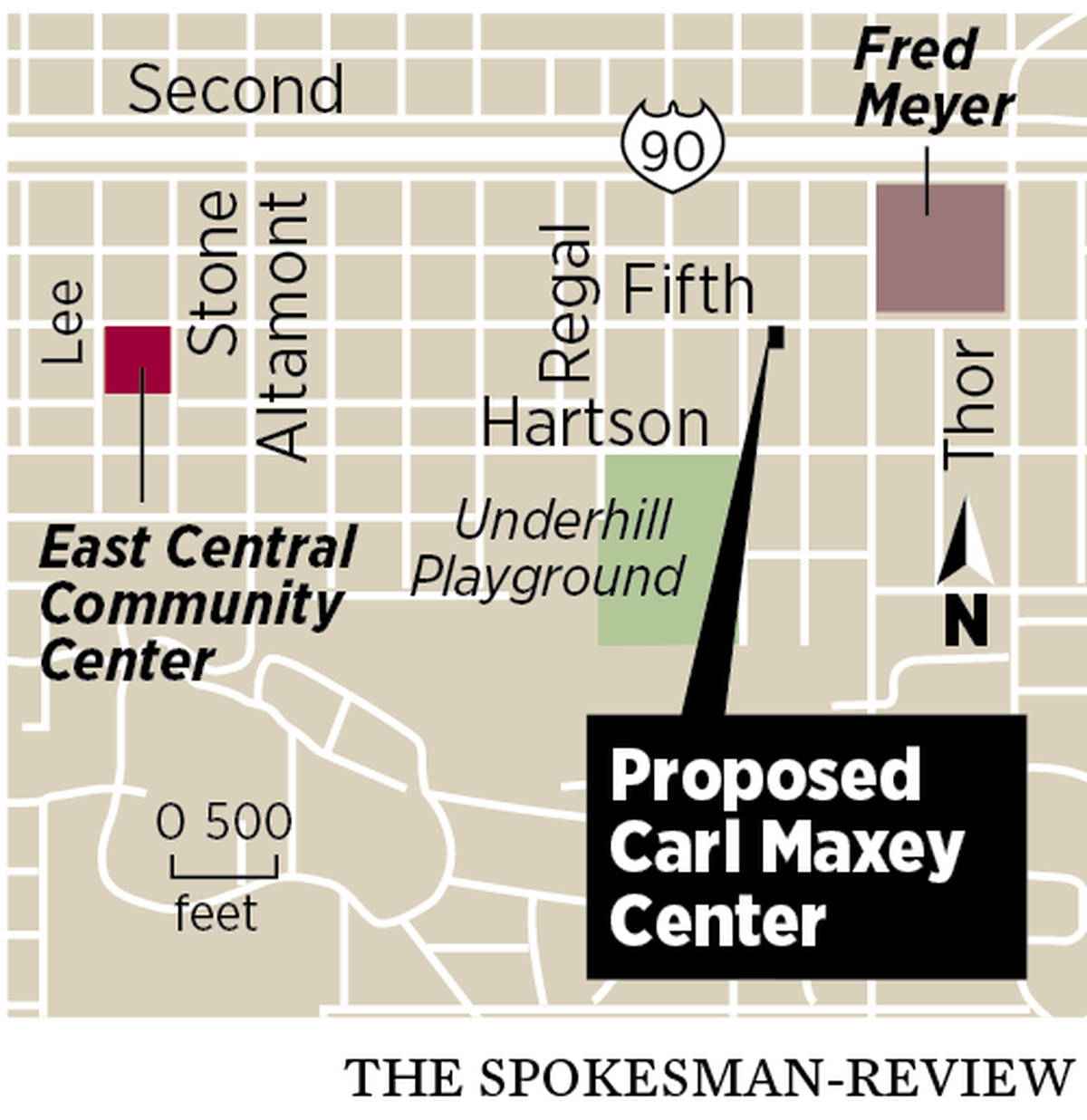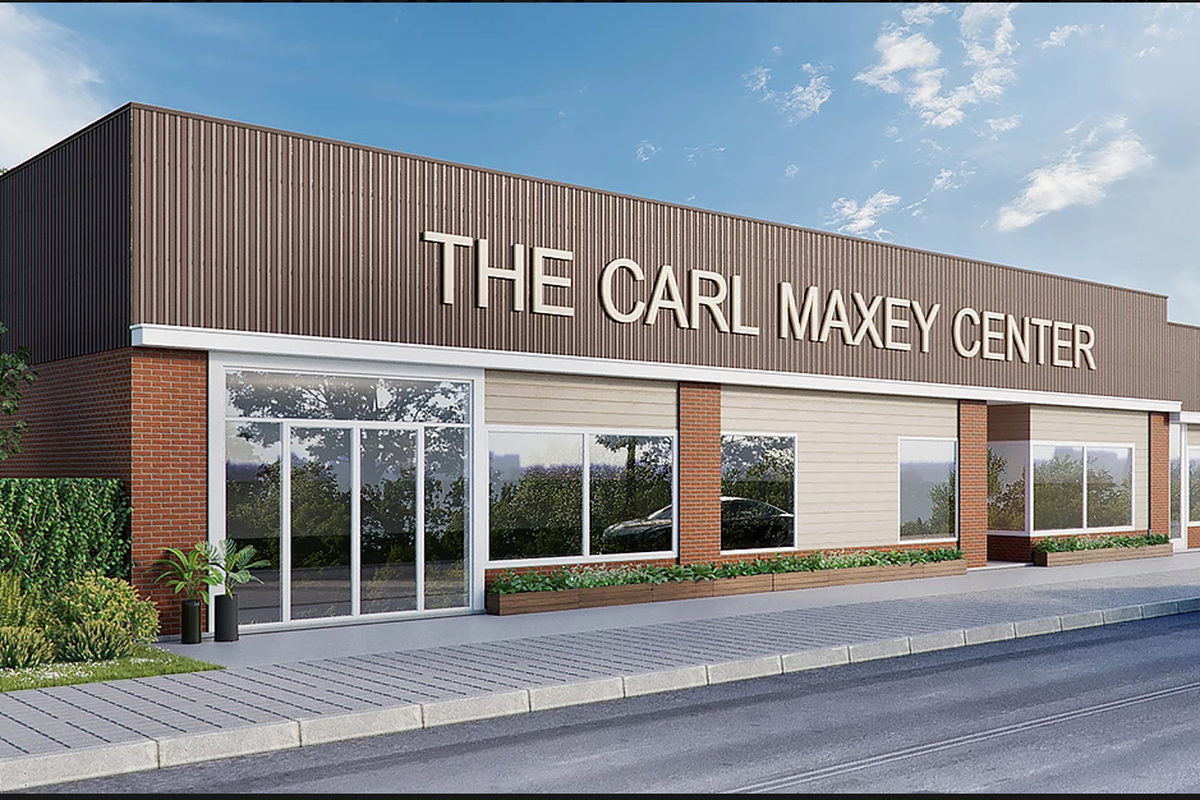Carl Maxey Center, a hub for local African-American community, proposed for East Central
A community center devoted to Spokane’s African-American population, and named after an icon of the local civil rights movement, has been proposed for the East Central Neighborhood.
The Carl Maxey Center is described as a place to focus “attention and efforts” on combating racial disparities in education, criminal justice, health, housing and employment.
The Rev. Walter Kendricks, pastor of Morning Star Missionary Baptist Church of Spokane who helps guide the group trying to bring the center to realization, said the Maxey Center will be a “hub for activities for the community of color, black people in particular. Also to honor the life and legacy of Maxey and all the things he did to further and advance the people of color in Spokane.”
Led by Sandy Williams, the editor of the Black Lens newspaper and a member of the state Commission on African-American Affairs, the effort is currently trying to raise $375,000 by August to purchase and rehabilitate an old automotive mechanics shop on East Fifth Avenue west of Fred Meyer.
An anonymous donor has said they will match $100,000 for the project.
“Given all the stuff that’s going on in the country, people want something positive to help with, something concrete they can actually do something about,” Williams said. “This has emerged at a really perfect time in order for people to do something positive. Let’s show what Spokane do in the midst of all this other stuff.”
When complete, the building would house the center, which will include work training programs, education about the history of African-Americans in Spokane, community events and classes and space to rent. Programming at the center will be focused on Spokane’s black community.
Kendricks said the center will be “cutting edge,” and renovated with “green” building technology and materials, and “wired with the fastest internet possible.”
Spokane City Council President Ben Stuckart, who is hosting a fundraiser for the center at his house this month, said he’s long heard of the need for a center that caters to African-Americans.
“What I’ve always heard is there needs to be place for the African-American community to gather,” said Stuckart. “We have these great community centers that are great for the community as a whole, but what I hear is that the African-American community would like a place of their own.”
Stuckart said the request is similar to those he’s heard from the Native American and LGBTQ communities.
Bevan Maxey, Carl Maxey’s son and a lawyer in Spokane, said he was supportive of a center that carried his father’s name.
“I’m certainly very supportive of anything that promotes equal opportunities for people, particularly children, of all races. A business or facility that could support minority-owned businesses would certainly be helpful,” he said. “Any type of activity that supports inclusion of all groups into the community, and allows them to have the opportunity to interact for good purposes, would be something that I’m sure everyone would totally be supportive of.”
The Maxey Center would be located about a half-mile from the East Central Community Center, which has gone through some turmoil in recent years. It is currently operated by the Martin Luther King Jr. Family Outreach Center, which was awarded a four-year City Council contract to run the facility in October.
The MLK Center won the contract after the center’s previous operator, the East Central Community Organization, faced scrutiny about whether it was meeting the requirements of its contract. That group had taken over operations from the city in 2012.
Williams said the Maxey Center will seek to work in collaboration with the East Central Community Center and the Emmanuel Family Life Center, located in the nearby South Perry District.
“I see them being complementary. The ideal scenario is we collaborate and bring more services to a part of town that really needs them,” she said. “That part of Spokane has, in all honesty, been neglected a little bit. Imagine us working collaboratively together and all the things we can do.”
Kendricks said the work of the Maxey Center and East Central Community Center will be “definitely not competitive, no doubt about that.”
He said the Maxey Center organizers are hoping to meet with the leaders of the MLK Center to discuss the goals of both.
“We’re for bringing the community together, not to divide them,” he said.
Calls to the MLK Center seeking comment were not returned.
The East Central Neighborhood has been identified with the city’s African-American community nearly since Spokane’s founding. In the early and mid-20th century, the city was deeply segregated, in large part due to federal housing guidelines that steered mortgage lending away from communities of color, and allowed racist covenants to be included in home sales documents, barring the sales of homes to people who weren’t white.
Real estate agents followed suit, showing white people homes in white parts of town, which constituted most of Spokane, especially the South Hill. African-Americans were shuffled to other parts of town, primarily the East Central area.
In 1960, 63 percent of Spokane’s black population lived in just three of the city’s nearly 40 Census tracts, all three in the East Central.
That troubled past, however, may lead to a bright future.
“It’s exciting. In the times in which we live, with the nation so divided, the Spokane community is rallying around this concept,” Kendricks said. “The name Maxey, it still carries weight. We are going to see this through. It is going to be of great benefit for the community. Not just the African-American community, but all of us.”

